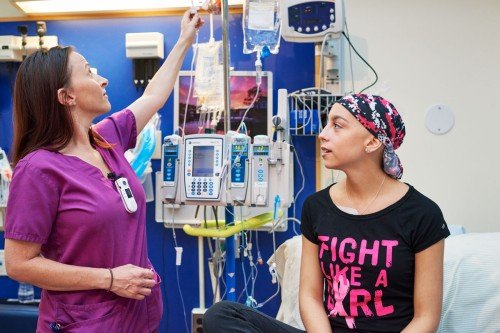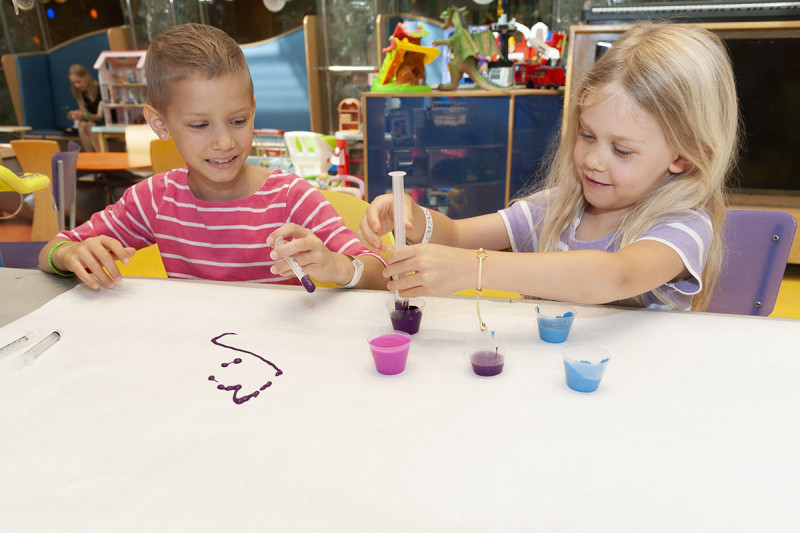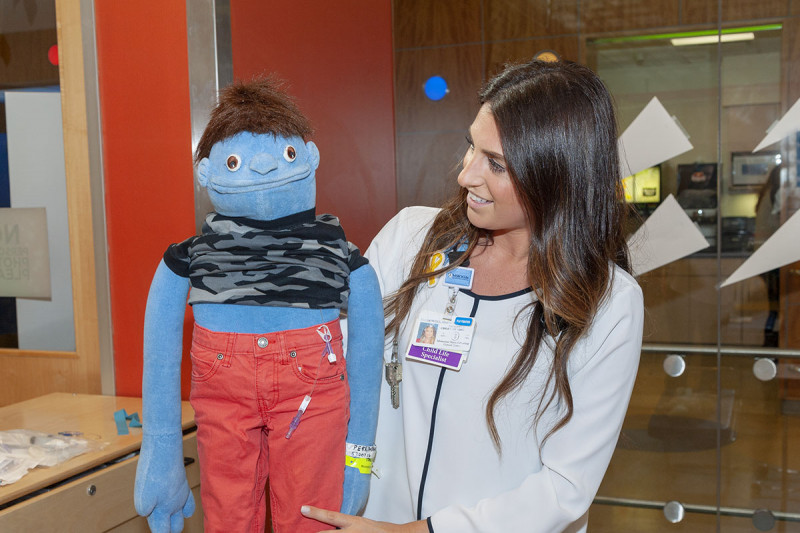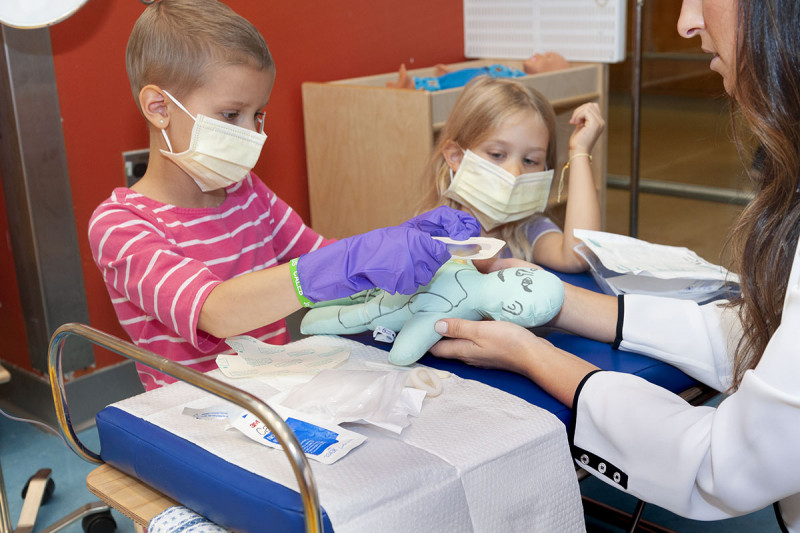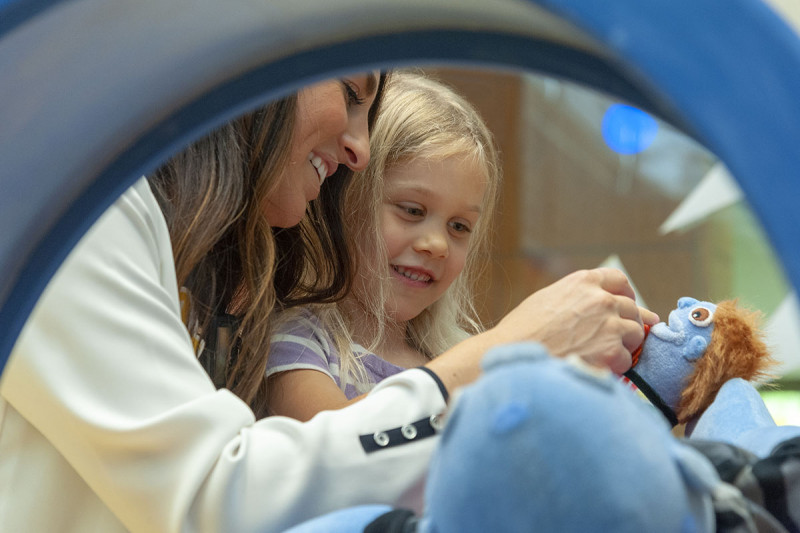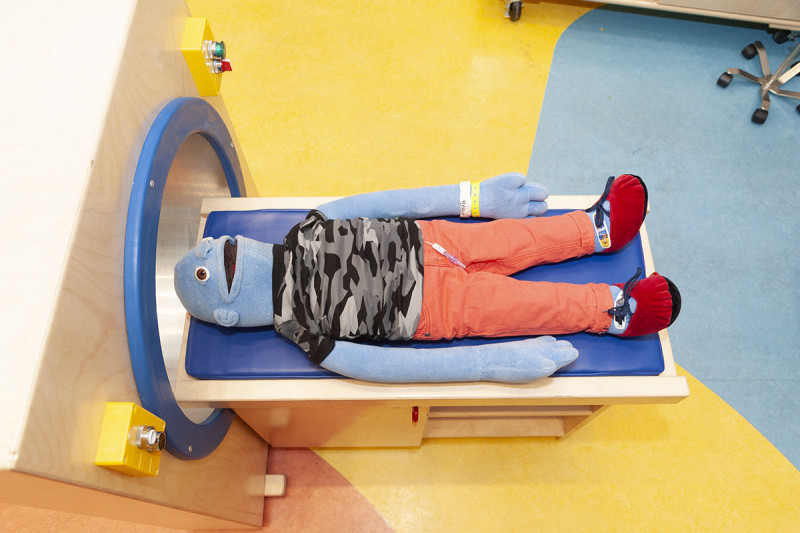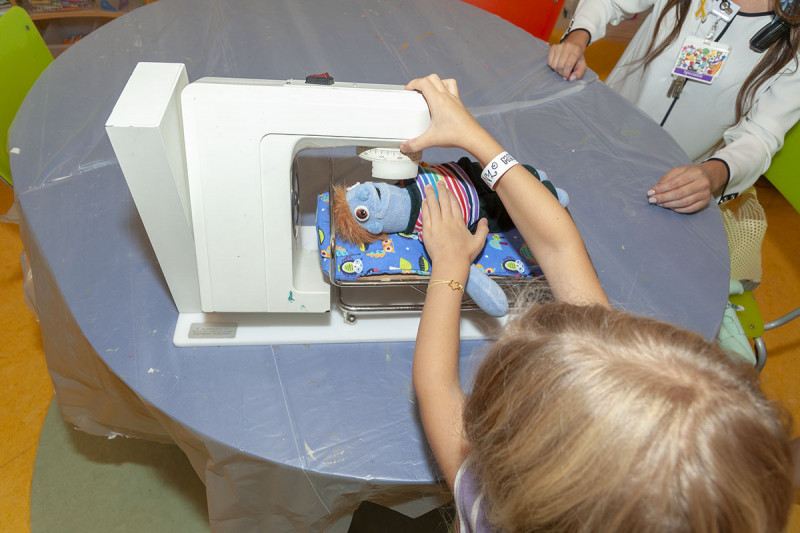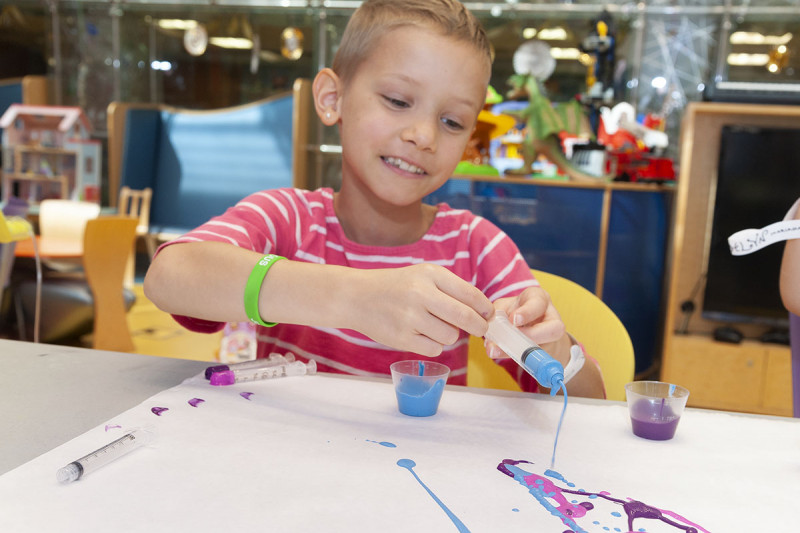
A hospital can be an unnerving place for anyone, regardless of age. But for children, the environment may be totally unfamiliar, which can cause even more anxiety. At MSK Kids, every effort is made to help young people familiarize themselves with their surroundings. Child life specialists lead patients and their siblings in activities that teach them about their treatment and care needs, and how to actively engage in their care.
Medical play is one of the most popular approaches. Through medical play, kids’ imaginations are cultivated and celebrated, and learning leaps to life. Children and specialists use doll-size equipment to act out different procedures and experiences. At the Kids Clinic at MSK, dolls or puppets become the patients and the kids are the medical providers! This role change empowers patients and offers them some control over what they are experiencing. Some of the tools available in the Kids Clinic are an operating room complete with an operating table and light, an MRI machine, and an exam area. Real medical supplies, such as bandages, gloves, and masks, are used on the puppets and dolls. There are special puppets that show children mediports and IV lines, surgical scars, and other changes that can happen during and after cancer treatment.
The Kids Clinic is located in the Recreation Center at the Pediatric Ambulatory Care Center, but medical play takes place all around the hospital. If children can’t make it to the clinic, child life specialists bring the tools to them.
“The language of kids is play,” says MSK Kids child life specialist Monica Slodowski. “It’s how they work through things. We use this approach to explain treatments and experiences, and elicit questions. That tells us a lot about what they’re feeling and thinking.”
Understanding a child’s mind-set helps specialists like Ms. Slodowski determine how to help kids feel more empowered during their care. This can foster positive associations with the hospital environment, better prepare them for their experiences, and help them process what’s happening.
“If you feel prepared and supported off the bat, chances are you will continue to develop and sustain good coping strategies, and process your experiences in a positive way,” she says.
Click through the slideshow below to see how imagination comes to life through medical play at MSK Kids.
